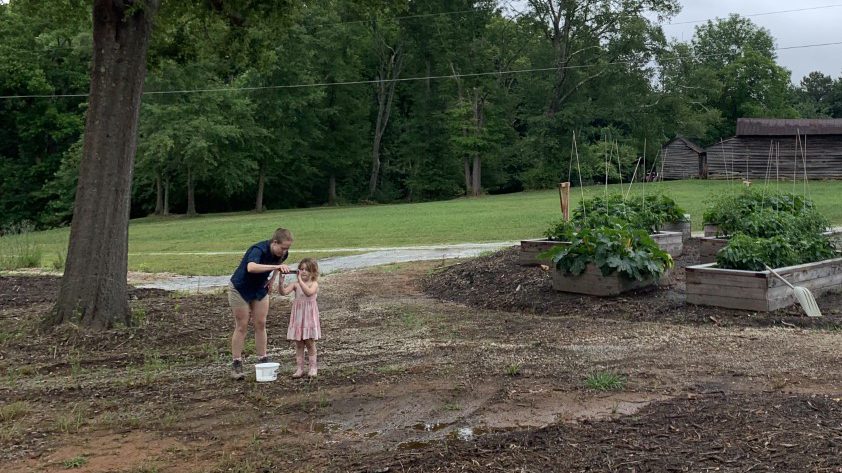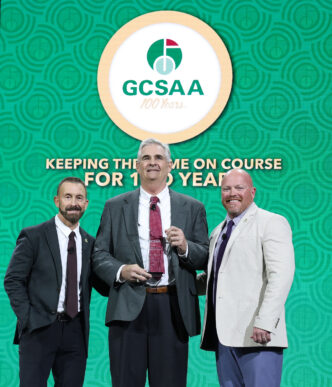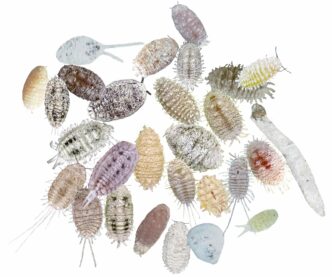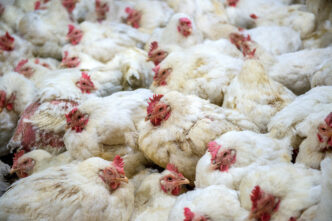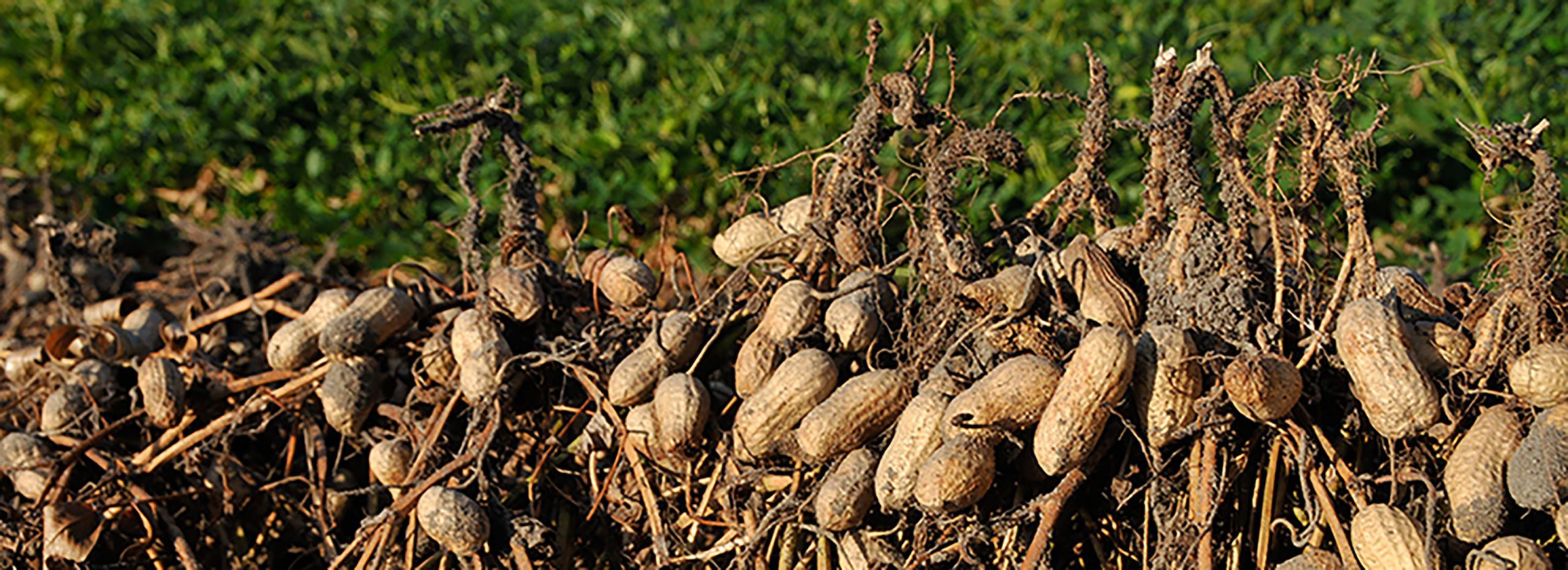Grants from the National Science Foundation are coveted by even the most experienced scientists and academics. Some grants, such as those in the Research Experiences for Undergraduates (REU) site program, are reserved for outstanding students.
Reagan Ross is an anthropology and food science double major who received an REU award from the NSF Cultural Anthropology Program in July 2021. Ross’ project studies a community garden in Prosperity, South Carolina, and uses ethnographic fieldwork to investigate residents’ responses to and perceptions of the garden.
We caught up with Ross to talk about the work she has been doing in Prosperity, how she has collaborated with community members and faculty members in two colleges on the project, and what she is getting out of the experience as an undergraduate researcher.
Why choose to double major in anthropology and food science? What is the allure of both for you?
My father has always been the baker and cook of our home. He introduced me to the joy of cooking and opened my mind to its artistry and excitement. I took my first official culinary arts classes in high school. During this time, I also started working in a professional kitchen, where I would stay for roughly four years. I learned that although I might not want to be a chef, I still had so much love and appreciation for food science and culture. So, when I searched for a major that would help foster these passions, I found Clemson’s food science program and knew it was a match.
Before I transferred to Clemson, I spent one year at Midlands Technical College, where I took my first cultural anthropology class and fell in love. While working with the Food Science Club, Agronomy Club, the ’55 Exchange, and the Clemson Food Collective at Clemson, I picked up an anthropology minor to explore my curiosities in the subject. I realized that the aspect of food that called to me the most was the social, cultural, economic, political and historical significance of foodways from hyper-local to global levels. During the initial COVID-19 quarantine, I decided to take on anthropology as my second major, resulting in two extra semesters at Clemson.
Combining these passions and knowledge sets has allowed me to analyze food-related issues from both technical and social scientific perspectives. With a general love of food and excitement to see the way people all over the world interact with it, I think that food science and anthropology are a perfect blend for me.
How did you find out about the NSF opportunity?
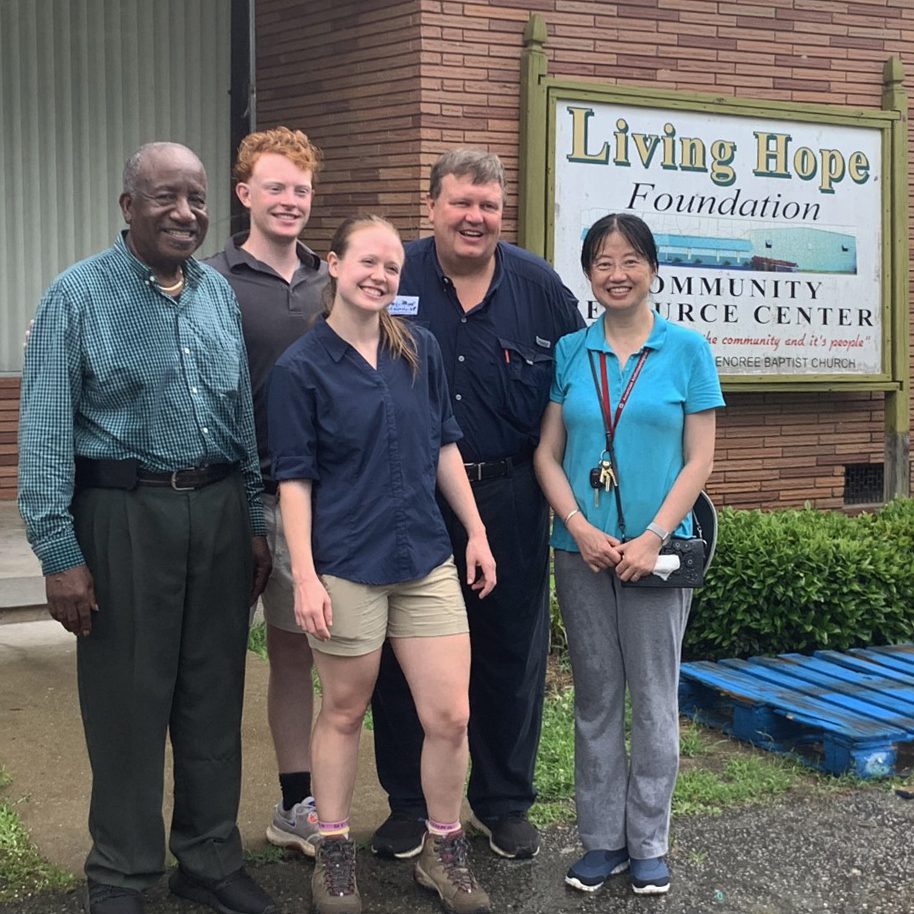
I first learned about the opportunity in Fall 2019, and I have the Clemson Food Collective and the engagement of Clemson’s anthropology faculty to thank. At the time, I was taking Dr. Yi Wu’s Intro to Anthropology course. There, she explained her work on a project funded by the parent NSF grant, which allowed her to mentor an undergraduate research project as an extension of her grant, which became the REU grant. Another faculty member in the anthropology program, Dr. John Coggeshall, with whom I was discussing Food Collective activities at the time, had also reminded me of the REU opportunity and directed me to Dr. Wu.
Dr. Wu and I formally started to design the REU project in October 2020. After much discussion, we realized that the work I previously did in Prosperity would be a perfect fit. In the summer of 2020, I worked as an intern through Clemson’s Creative Inquiry program in conjunction with a CI course run by Dr. Kirby Player of the College of Agriculture, Forestry and Life Sciences. This internship and its related CI course were the geneses that introduced me to this community garden. Therefore, Dr. Wu and I invited Dr. Player to join our team. Dr. Wu and Dr. Player served as co-mentors of the REU project.
The three of us worked together on the proposal for several months – lots of writing, revising, paperwork and working through protocols. In the end, I learned so much from the application process and am so grateful for the experience.
Why do you think the work in Prosperity is important?
Prosperity belongs to an economically less advantaged region in the U.S. and much of the town, and a large portion of Newberry County, experiences food insecurity. Therefore, this town constitutes a fertile ground for examining the perceptions of people of different classes, races and ethnicities on food justice and community space, which is especially important in a pandemic context.
Supported and operated by devoted staff and volunteers, this community garden has great potential at making a significant impact on the health and overall wellbeing of those in Newberry County – particularly those who are typically underserved. The community garden is now going through its first harvest season, and its priority is to give as much of the harvest as possible to local food banks. It is one of only a few organizations in the area that specifically works to provide fresh fruits and vegetables for those experiencing food insecurity. It will also serve as a place for community gatherings where neighbors can walk around, pick produce and connect with nature and one another. Down the road, the Living Water Foundation (the non-profit that operates the community garden) also plans to host community classes in the garden and foster additional partnerships with local entities such as churches, schools, and farms to improve the overall health of the community.
The REU project studies local residents’ perceptions of this garden and therefore it will contribute to the successful operation of the community garden, especially in terms of its outreach and the service it offers. If this project can help continue and even improve their efforts, I believe it is worth funding.
What do you intend to find and why could these findings be significant?
Through this REU project, I intend to find out local residents’ responses to and perceptions of this community garden. Specifically, I want to learn how residents’ socioeconomic status and ethnic identity shape their perceptions of the purpose and benefits of the community garden, how they would like to participate in garden activities and to what levels, and how their perceptions of the garden reflect their more general attitudes toward food justice, public space and community development.
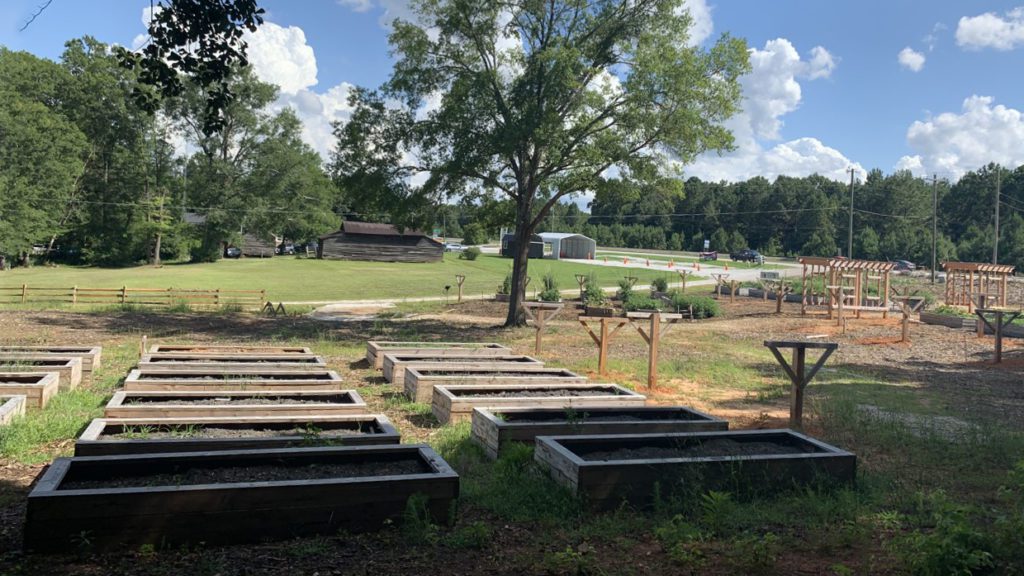
I have been finding these perceptions through multiple data methods: surveys ask residents about their perceptions of the garden and community gardens in general, while interviews allow me to see how individuals relate to the garden and their community on a deeper, much more personal level. I also gathered historical texts to understand factors that have shaped food insecurity conditions in this region. I have participated in garden activities, meetings of the board members managing the garden and local events that shed light on the general social and cultural atmospheres. In short, I am casting a wide net to get an accurate picture of how the community sees the garden.
The research results could help the Living Water Foundation better determine how to reach and serve the county through the garden. In the future, we could offer the research results as a guide to similar food-based service initiatives that hope to positively affect their local communities.
What inspires you to work with this population and to help address food insecurity?
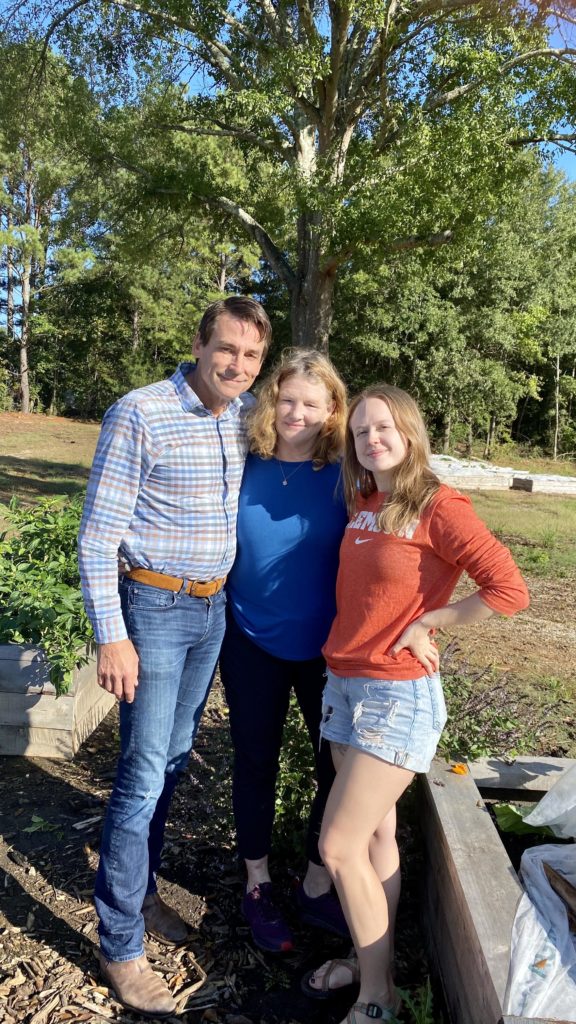
Much of my work and study experience inspired me to work and help address food insecurity for the underserved population. I worked with the people of Prosperity during the summer of 2020 as an intern at the Living Water Foundation and formed an instant connection. Regarding food insecurity, I have had the opportunity to work with these issues through Creative Inquiries such as the College of Behavioral, Social and Health Sciences’ Introduction to Food Systems (run by Dr. Mariela Fernandez), participating in the Clemson Food Collective, and volunteering at local farms and community gardens. After learning about causes, effects and the systemic nature of food insecurity, I realized that many parallels could be drawn with the people of Prosperity.
Many of us take reliable access to nutritious foods for granted, and institutions are quick to silence those who do not always have this access. Assistance has been either sparse or inadequate, which only worsens when said institutions do not want to admit the problem. Hesitation to acknowledge the systems that lead to food insecurity only exacerbates the issue.
Food insecurity is easy to overlook and misunderstand, but it is hard to ignore when you experience it yourself or see it in the lives of those around you. For many, it is just a fact of life and has always been, and the lack of resources available to help people out of that situation is incredibly frustrating. However, these situations are also incredibly complex and take careful consideration and dedication to improve.
In doing this project, I hope to address food insecurity in Newberry County by working directly with one organization working to improve the issue. This research is dedicated to determining what is needed by the community, how to best provide those resources, and how to reach individuals most effectively.
How have Drs. Wu and Player advised you in this work?
I am fortunate to have Drs. Wu and Player as advisors in this work. They are both incredibly encouraging, kind and supportive, and they also offer complementary knowledge and skillsets.
Dr. Wu’s background in cultural anthropology and as an experienced ethnographer has been invaluable. She advises me on methods and theories and offers advice on the nuances and difficulties of conducting fieldwork. After we finish the current leg of the project, she will also guide me on analysis and anthropological writing.
Dr. Player, on the other hand, is our direct connection with the community. He is close friends with the founders of the Living Water Foundation and works closely with its board of directors. His knowledge of rural community development makes him a great adviser on relating to specific individuals and groups within the community. Still, he can also offer a more technical perspective on what it takes to run a thriving community garden.
I would also like to extend my gratitude to Clemson’s anthropology program. With five faculty members, the program is small but nevertheless covers all four subfields of anthropology. Students can work closely with faculty members in projects of cultural and community study, biological/forensic programs and archaeology field school. The anthropology club also offers incredible opportunities for students to experience and grow in new aspects of anthropology they have yet to explore.
What has been surprising to you about the experience?
They teach you in anthropology classes about the layers of personality, history, culture, and social ties you will uncover when doing ethnographic fieldwork, and these layers carry so much weight in reality. The rewarding experience of peeling these layers back and figuring out what work needs to be done has been the most surprising part to me. I am still working hard to learn all I can about the people of this county and how this garden can be most impactful, and I am surprised by what I learn every day.
The Department of Sociology, Anthropology and Criminal Justice is part of the University’s College of Behavioral, Social and Health Sciences (CBSHS). Established in July 2016, CBSHS is a 21st-century, land-grant college that combines work in seven disciplines – Communication; Nursing; Parks, Recreation and Tourism Management; Political Science; Psychology; Public Health Sciences; Sociology, Anthropology and Criminal Justice – to further its mission of “building people and communities” in South Carolina and beyond.

